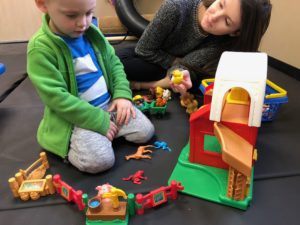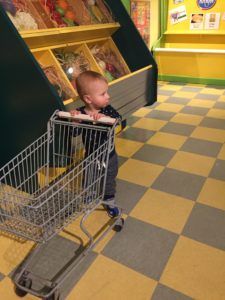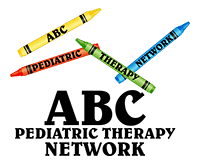Pretend Play Importance
Why is Pretend Play Important for Children?

Have you ever watched your toddler or preschooler dress up as a doctor, take a box and pretend it’s a spaceship, or pick up a brush and pretend to call someone? Children are observant hands on learners who learn through their imagination. Pretend play is fun and also has an important role in child development. Pretend play builds language skills, problem solving skills, social/emotional skills, and encourages creativity.
- Language skills
–Children who engage in pretend play are building upon their vocabulary while learning new words to re-create a situation. This helps a child understand the meaning of words and using words to achieve a desired response. Pretend play is a great way to engage in back and forth communication with a caregiver or peer, which helps to build a child’s communication skills.
- Problem Solving Skills
–As a child plays, they are constantly figuring out ways to solve a problem. How can my friends join in the game? What if my mommy or daddy doesn’t want to be the teacher? What materials do I need? This higher-level problem solving and cognitive thinking is important as they head into school and even adulthood.
- Social/emotional skills
–When children engage in pretend play with peers it allows them to learn the importance of cooperative play through turn taking and sharing. Pretend play encourages a child to “be someone else”, understand the emotions of other people, and make sense of their world. Children often use pretend play as a way to understand new situations that are unfamiliar or scary (going to the doctor, going to the dentist, attending their first day of school).
- Creativity
–Pretend play allows a child’s imagination to run wild! They are able to think for themselves and use a variety of materials to create new things.

Early childhood is a great time to encourage a child to use their imagination and engage in pretend play. Sit back and enjoy watching their minds wander to new places!
For more information, visit http://www.abcpediatrictherapy.com
Developmental Checklist
Is your child meeting their developmental milestones?
 Skip to content
Skip to content